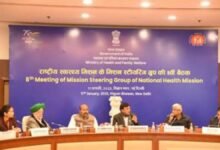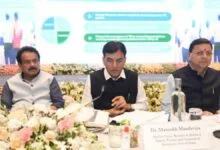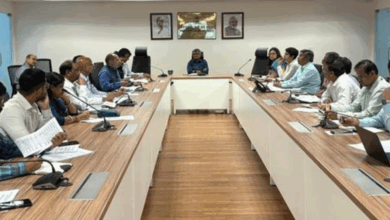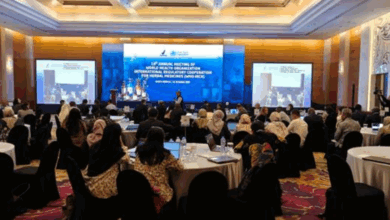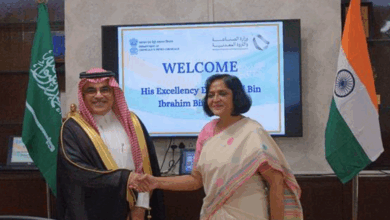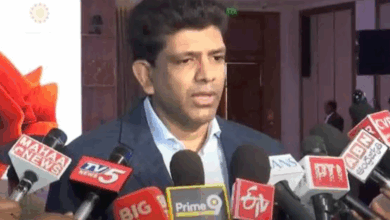Union Minister of Chemicals and Fertilizers, Dr Mansukh Mandaviya chairs the First Governing Council meeting of the National Institutes of Pharmaceutical Education and Research (NIPERs)
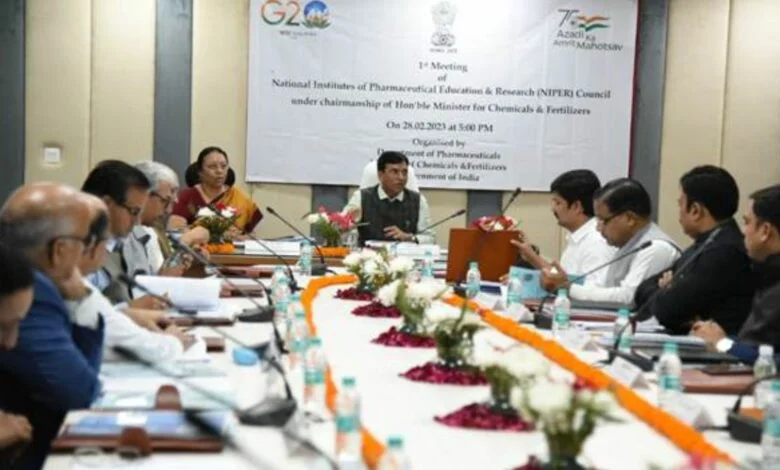
Reiterates the government’s commitment towards strengthening the holistic research ecosystem in the pharma sector
“Research and innovation are necessary for the sustained growth of the pharmaceuticals sector. Our focus must shift from a self-sustenance model to a profit model by expanding the research base, creating industry connections and ramping up infrastructure. The expertise of our human resources must be utilized along with the implementation of best practices from other institutions. Only then we will be able to make the National Institutes of Pharmaceutical Education and Research (NIPERs) the centre for high-quality research and create a fundamental base for pharmaceutical innovation in the country.”
Union Minister for Chemicals & Fertilizers, Dr Mansukh Mandaviya stated this as he chaired the first Governing council meeting of the National Institute of Pharmaceutical Education and Research (NIPERs) along with Shri Ramesh Bidhuri, Member of Lok Sabha, Dr Maddila Gurumoorthy, Member of Lok Sabha, Dr Radha Mohan Das Agarwal, Member of Rajya Sabha at National Institute of Health & Family Welfare (NIHFW), here yesterday. He invited suggestions from everyone on the efficient implementation of guidelines and structures so that all stakeholders come up with quality ideas that can be speedily put into operation.
In a tweet posted by Union Minister, Dr Mandaviya reiterated the government’s commitment towards strengthening the holistic research ecosystem in the pharma sector and the brand NIPER.
“Research and innovation are necessary for the sustained growth of the pharmaceuticals sector”
Highlighting further the necessary interventions that can be taken, Dr Mandaviya said that “Government has initiated various steps such as pharma innovation, a new programme to promote research and innovation in pharmaceuticals is being taken up through Centres of Excellences (CoEs). We shall also encourage the industry to invest in research and development in specific priority areas, such as medical devices and health technologies.
We must come up with competitive and commercially viable solutions through our NIPERs. This can only happen through robust collaboration and consultations not just among NIPERs but relevant research institutions like the Department of Biotechnology, Department of Scientific and Industrial Research, ICMR, DRDO etc. In this regard, formal and informal interactions among peers, and researchers need to take place”.
Speaking about strengthening institutional capacities, Union Minister urged all the participants to adapt to the fast-paced world of technology and focus on making the country self-sufficient in the most critical technologies of the future. He said that “we must work with the needs of modern times and the country’s requirements.” Best practices from the world must be adopted and implemented after being modified to the local needs, he further exhorted.
Our focus must shift from a self-sustenance model to a profit model through expanding the research base, creating industry connections, and ramping up infrastructure: Dr Mansukh Mandaviya
To give a push to R&D efforts and give them more exposure for commercialization, Dr Mandaviya suggested “expanding the research repository for better visibility to all stakeholders. This would further create better coordination among researchers and synergize efforts in creating more translational research towards commercially viable products.” NIPER Research Portal is one such step to disseminate information about the research activities of all NIPERs and to help other researchers, especially the industry to get in touch with the relevant organizations. He encouraged NIPERs to create a vibrant scientific community by harnessing the talents of the young generation, promoting academic autonomy and delivering on their research goals.
Dr Mandaviya released a research compendium showcasing compendium which is a compilation of Research and development in drugs and pharmaceuticals being carried out at NIPERs. It enumerates the outcome of R&D activities in the form of patents, publications, extra-mural, Industry sponsored projects.
Members thanked for the key inputs given by the Minister and promised to work on them through the council. Suggestions such as a cluster-based approach for research, the multidisciplinary nature of institutes, innovative academic programs such as formalizing industry collaboration, financial robustness and independence, high-quality research, and suggestions from the National Educational Policy (NEP) were taken up during the meeting.
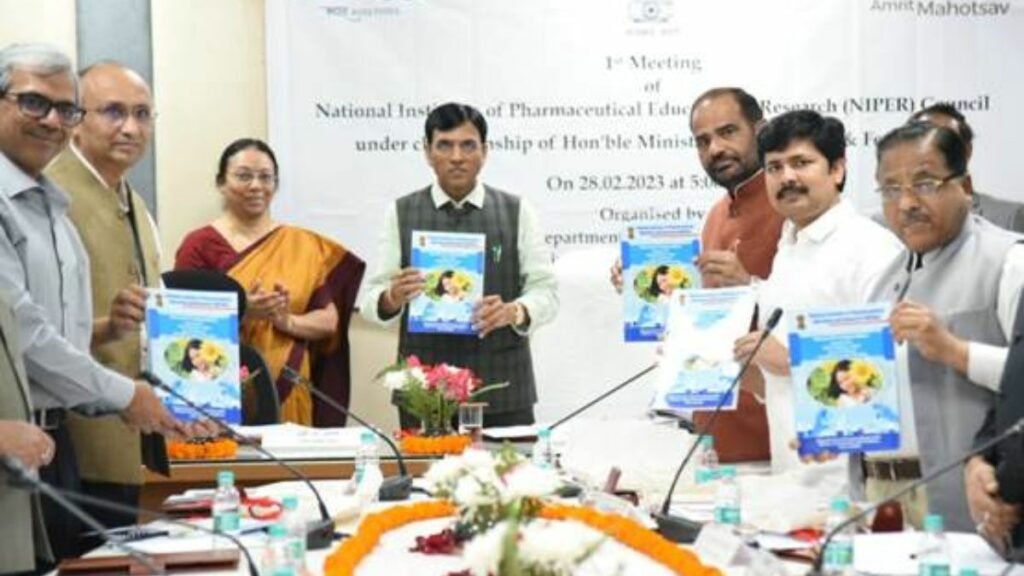
Urges Stakeholders to adapt to the fast-paced world of technology and focus on making the country self-sufficient in the most critical technologies of future
Ms S. Aparna, Secretary, of the Department of Pharmaceuticals highlighted that the “Council has brought together policymakers and leading representatives from the Pharma sector whose invaluable suggestions and experience are critical for growth and development of NIPERs.” Stressing the need of creating end-to-end research, she exhorted institutions to focus on their strong research areas so that research optimization can take place.
Dr Rajesh S. Gokhale, Secretary, Department of Biotechnology, Dr. Rajiv Bahl, Secretary, Department of Health and Research, Dr. Girish Sahni, Chairperson, Board of Governors, NIPER Mohali, Prof. Samit Chattopadhyay, Chairperson, Board of Governors, NIPER Hajipur, Dr Satyanarayana Chava, Chairperson, Board of Governors, NIPER Hyderabad, Dr Madhu Dikshit, Chairperson, Board of Governors, NIPER Raebareli, Directors of other NIPERs, Industry representatives, representatives from Indian Drug Manufacturers Association (IDMA), Organisation of Pharmaceuticals Producers of India (OPPI) along with senior officials of the Ministry were present in the meeting.
Disclaimer: This is an official press release by PIB.

